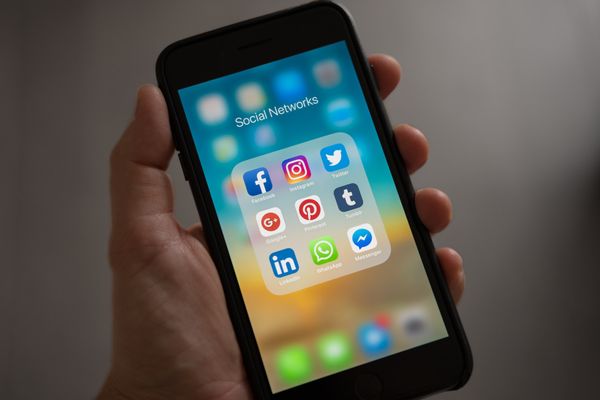5 Common Privacy and Security Mistakes You're Making on Social Media

In this data-driven age, users from across the globe are actively enriching the digital landscape, voluntarily giving out their information to the online world.
From Instagram and Twitter to Facebook and TikTok, users share aspects of their personal lives, likes, dislikes, interests and, quite often, sensitive information that can jeopardize their digital and physical wellbeing.
Going online brings opportunities and obstacles. On the one hand, you can research, work, shop and communicate with others. On the other, you face endless tracking from big tech giants, misinformation and exposure to cybercriminals, scammers, bullies and stalkers, who can use every piece of information against you.
Here are the five most common mistakes you're probably making on social media right now, risking not just your privacy but your financial wellbeing as well.
You reuse passwords on multiple accounts
It's time we talked about the dreaded (12-character long, non-predictable and unique) password with uppercase, lowercase and special characters you really don't want to have to come up with time and time again.
Strong passwords are the lock and key to your personal and financial information online. A strong, unique password for each social media account makes it harder for threat actors to gain access if your data is exposed in a breach or you get scammed online.
When you finish reading this, take some time to review your social media accounts, and change the passwords to those that share the same login credentials.
You skip security essentials
Despite multiple campaigns to raise awareness of data breaches and cyberattacks, users put no effort into securing their accounts with basic privacy and security settings. such as two-factor (2FA) or multi-factor authentication (MFA) features.
It only takes a minute to set up 2FA for your Facebook account. By simply enabling it, you spare yourself a big headache should your credentials end up in the wrong hands.
Additionally, go over the public status of your account. Is it really necessary for everyone to have access to the information you post, such as your photos and location?
You can find a more comprehensive guide on how to protect your privacy on Facebook here.
You overshare personal data and life events
This one might sting a little. Oversharing online is an act we're all guilty of. While we're not saying you shouldn’t share any information, you should at least keep your phone number, birthday and email address private to reduce your chances of becoming a target for scammers and cybercriminals who want to phish for sensitive data.
Consider skipping those check-in statuses too. This seemingly innocuous act may let a malicious individual know when you're out having dinner with friends and family or going on vacation. The perp could follow you or break into your home to steal your valuables or worse.
Think twice before you post or share info and ask yourself if or how this data could be used against you at some point. Of course, never share bank, credit card data, home addresses or passwords online, Duh!
Last but not least, avoid posting too many photos. It won't serve you well in the long term. Recruiters and companies often check your social media profile before hiring. So if you're looking for a new job, review your albums, or at least, make some of the photos private.
You neglect to check your tagged photos
You're accountable for the data and photos you post on your profile. But have you thought about the implications a post you're tagged in could have for your online reputation? You can always check for settings that help you prevent any embarrassing tagged photos from ending up on your profile for everyone to see.
You accept friend requests from strangers
Having hundreds of individuals in your friend list is a big deal on social media. However, friending strangers online and giving them access to all your posts alongside any personal information and opportunity to communicate with you can be a highly dangerous combo.
The online world isn't all fun and games; it's filled with malicious individuals who prey on trusting individuals like you. You risk making yourself vulnerable to phishing attempts, fraudsters and romance scammers.
Do yourself a favor and do some preventive spring cleaning of your friends' list. If you find any suspicious or unfamiliar people, remove and block them immediately.
With Bitdefender Digital Identity Protection you can take control and minimize your digital footprint by continuously monitoring for data breaches and social media impersonators that could ruin your reputation. Digital footprint monitoring uses only your e-mail address and phone number. The dedicated tool helps find your private information online, in legal and illegal collections of data. Stay on top of new breaches and privacy threats with instant alert and monitoring to make more privacy-focused choices while browsing the web.
tags
Author
Alina is a history buff passionate about cybersecurity and anything sci-fi, advocating Bitdefender technologies and solutions. She spends most of her time between her two feline friends and traveling.
View all postsRight now Top posts
How to Protect Your WhatsApp from Hackers and Scammers – 8 Key Settings and Best Practices
April 03, 2025
Outpacing Cyberthreats: Bitdefender Together with Scuderia Ferrari HP in 2025
March 12, 2025
Streamjacking Scams On YouTube Leverage CS2 Pro Player Championships to Defraud Gamers
February 20, 2025
How to Identify and Protect Yourself from Gaming Laptop Scams
February 11, 2025
FOLLOW US ON SOCIAL MEDIA
You might also like
Bookmarks







